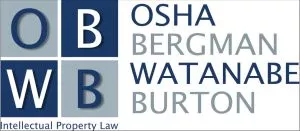The U.S. Court of Appeals for the Federal Circuit recently affirmed a district court's dismissal of a complaint for infringement of machine learning patents based on subject matter ineligibility of the patent claims under the Patent Act, 35 U.S.C. § 101. The district court had concluded that the claims recited known machine learning algorithms and did not provide a specific method for improving the algorithm, nor did they add "significantly more" to the abstract idea of using a generic machine learning algorithm in a specific field. Thus, the claims were deemed to be invalid. On appeal, the Federal Circuit distilled the matter down to the question of whether applying established methods of machine learning to new fields imparts patent eligibility, concluding that it does not. This decision highlights the importance of drafting claims related to machine learning algorithms to avoid "generic" language and, where possible, tying inventive methods to physical improvements of the computer or system. In addition, Recentive Analytics, Inc. v. Fox Corp.1 provides guidance to patent drafters regarding the need for adequate description of methods using machine learning (ML) and/or artificial intelligence (AI) algorithms. Finally, the decision raises broader questions regarding patent subject matter eligibility of claims directed towards ML and/or AI algorithms.
The patents-in-suit generally relate to improved methods for generating network mapping and live performance schedules for television broadcasts and events using machine learning. The patents were considered in two groups: the "Machine Learning Training" patents and the "Network Map" patents. When Recentive sued Fox alleging infringement of its patents, Fox moved to dismiss the complaint on the grounds that the patents were subject matter ineligible under 35 U.S.C. § 101. The district courts granted the dismissal, finding that the claims of the Machine Learning Training and Network Map patents were "directed to the abstract ideas of producing network maps and event schedules, respectively, using known generic mathematical techniques." The district court also concluded that the claims were not directed to an inventive concept that amounts to significantly more than the ineligible concept because the machine learning limitations recited "broad, functionally described, well-known techniques" using "only generic and conventional computing devices." Recentive requested leave to amend its complaint, but the district court denied the request stating that any amendments to the complaint would be futile. Recentive appealed the dismissal of its complaint to the Federal Circuit.
The appellate court first noted that in the specifications of all four patents, it was clear that the methods use generic computing equipment in conjunction with any suitable machine learning technique. Thus, the Federal Circuit concluded that the case may be distilled down to whether "claims that do no more than apply established methods of machine learning to a new data environment are patent eligible." The court concluded that they are not.
In the context of software patents, the court explained that the first step of the familiar Alice inquiry looks to determine whether claims focus on "the specific asserted improvement in computer capabilities... or, instead, on a process that qualifies as an abstract idea for which computers are invoked merely as a tool." In this case, the court agreed with the district court that the claims do not adequately describe steps through which machine learning technology is itself improved in view of Recentive's admission that the methods use generic computing equipment in conjunction with generic machine learning techniques. Additionally, the Federal Circuit stated that claimed methods are not rendered patent eligible by the fact that they perform a task with greater speed and efficiency than humans could previously achieve, reiterating statements made in prior decisions regarding computer software-related inventions. Accordingly, the Federal Circuit concluded, as did the district court, that the Machine Learning Training patents and the Network Map patents are directed to abstract ideas at step one of Alice.
The analysis of the first step of the Alice inquiry is particularly interesting in light of the U.S. Patent and Trademark Office's 2024 Guidance Update on Patent Subject Matter Eligibility, Including on Artificial Intelligence2 (2024 AI Guidelines) which states that "AI inventions may provide a particular way to achieve a desired outcome when they claim...a specific application of AI to a particular technological field...In these situations, the claim is not merely to the idea of a solution or outcome and amounts to more than merely "applying" the judicial exception or generally linking the judicial exception to a field of use or technological environment." However, in the decision, the Federal Circuit stated that there is no merit in Recentive's argument that the patents are eligible because they apply machine learning to a new field of use, instead holding that the application of existing technology to a novel database does not create patent eligibility. As the decision does not include further claim analysis, it is unclear whether the argument may have been successful if the claims went beyond simply "using a machine learning technique" and instead described a specific machine learning technique, or if the court more broadly disagrees with the USPTO's 2024 AI Guidelines. It must be kept in mind that federal courts are not bound by policy or practice guideline statements of the USPTO.
Exactly what was meant by the Federal Circuit is further muddled by its framing of the argument, implying that the patents are ineligible because they do not claim a specific method for improving the mathematical algorithm or making machine learning better, as admitted by Recentive, and that the patents further do not delineate steps through which the machine learning technology achieves an improvement. The court's focus on improvement of the machine learning technology itself, as opposed to Recentive's focus on the improvement of event planning and network mapping, appears to suggest that had an improvement to the mathematical algorithms been present and adequately described in the patents, the claims may have been subject matter eligible. This implication directly contradicts with the 2024 Guidelines position that mathematical algorithms are a judicial exception and that "[a]n improvement in the judicial exception itself is not an improvement in the technology."
Regarding step two of the Alice inquiry, the appellate court simply stated that the claims do not include anything that would transform the Machine Learning Training and Network Map patents into something "significantly more" than the abstract idea of generating event schedules and network maps using machine learning.
The court concluded that Recentive's patents do no more than claim the application of generic machine learning to new data environments, without disclosing improvements to the machine learning models that are being applied, are not patent eligible under § 101. This again implies that AI-based methods should focus on claiming improvements to the algorithm itself, as opposed to improving a process or technique using AI and/or machine learning.
This decision highlights the difficulties surrounding patent eligibility of claims directed to applications of AI in the United States. However, the result is unsurprising given the claims were admittedly directed to application of a known technology to a known method. In an ideal world, this determination would have been made under §103 (obviousness) rather than §101 (eligibility). Unfortunately, a fix for the current conflation of the patent eligibility and substantive patentability tests will likely come only through an act of Congress.
Footnotes
1. 134 F.4th 1205 (Fed. Cir. 2025).
2. 2024 Guidance Update on Patent Subject Matter Eligibility, Including on Artificial Intelligence, 89 Fed. Reg. 58128 (July 17, 2024).
The content of this article is intended to provide a general guide to the subject matter. Specialist advice should be sought about your specific circumstances.



